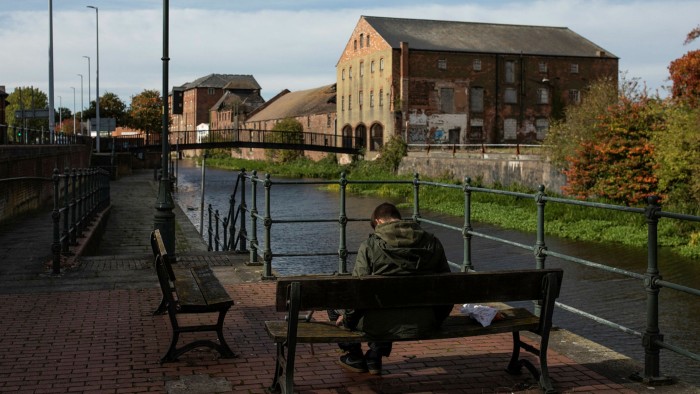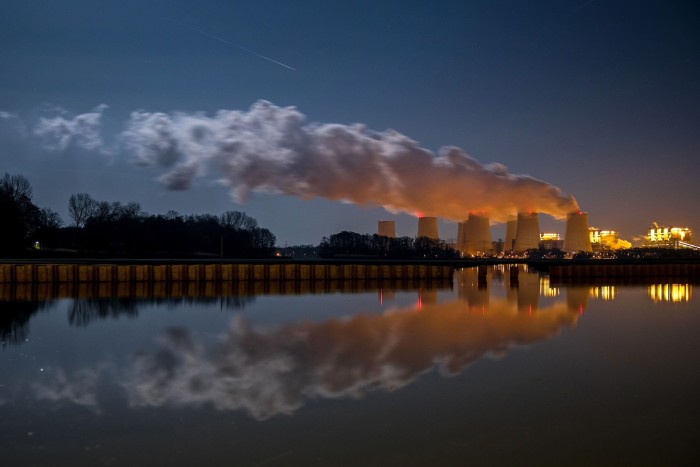Grimsby’s green revolution is a model for other towns post-pandemic

Roula Khalaf, Editor of the FT, selects her favourite stories in this weekly newsletter.
Grimsby was once home to the world’s largest fishing port. Now it is the base of the world’s largest offshore wind farm. The town, at the mouth of the Humber estuary on England’s east coast, is often invoked as an example of one of the UK’s left-behind places — damaged by globalisation and angrily embracing populist politics. But its future is more positive.
Grimsby’s first wind farm opened off its coast in 2008: the 54 turbines were part of the UK’s first major foray into renewable offshore energy. Since then, the fields have multiplied, adding hundreds of megawatts of power. By the end of 2022, eight vast wind farms are due to generate 5GW of power, supporting thousands of jobs back on land.
Katharine York, an operations manager in renewable energy in Grimsby, says green energy is giving the town a new lease of life: “Wind power has brought change and enthusiasm to a place that has been in historical decline and lost faith in itself.” She puts that success partly down to “an accident of geography” (easy access to the gusty North Sea), but also to local leadership.
“Grimsby wasn’t the only choice, nor the closest port to serve as the operations and maintenance hub [for the wind farms] . . . we had history that gave us the skills and some of the facilities and infrastructure needed. But mostly, it was a concerted effort to be welcoming that made life easier for businesses coming in,” Ms York says.
She wants to continue these efforts with the Grimsby Renewables Partnership of local businesses, which hopes to yield much more green investment.
Climate Capital

Where climate change meets business, markets and politics. Explore the FT’s coverage here
They may be in luck: last week, Prime Minister Boris Johnson set out a 10-point agenda for a green recovery from the economic hit caused by the Covid-19 pandemic — pledging to make the UK “the Saudi Arabia of wind”. Lia Nici, Grimsby’s first postwar Conservative MP, elected last December, is optimistic about the plan: “It’s exactly what somewhere like Grimsby needs.”
Other Conservatives, representing parts of England that broke with tradition by voting for their party last year, are concerned Mr Johnson’s strident green agenda will cost them votes. A leading northern Tory says that “climate change is a classic metropolitan issue. If that’s all Boris is going to be talking about, we might be in trouble.”
Claire Perry O’Neill, the government’s former climate tsar, related in a recent interview how Mr Johnson’s former adviser Dominic Cummings had told her the “green stuff” was “just an obsession of posh boys in southern seats”.
That view sets up a misleading divide between the priorities of the north and south. A shift to green industry is not only essential for the obvious priority of saving the planet from irreversible global warming; it can also provide exactly what the struggling towns of England have been yearning — and voting — for: prosperity. Even voters who are sceptical of environmentalism can buy into green policies if they are convinced they will achieve that goal.
Melanie Onn, deputy executive of the wind industry’s trade body RenewableUK, has seen such scepticism in Grimsby — her home town. As Labour MP in Grimsby until last year, she concluded that a realistic but upbeat narrative about employment can win people over.
“Nobody thinks this is a replacement industry for what has been lost, but it’s bringing investment to Grimsby that it hasn’t seen for decades,” she says. “The government has a laser focus on getting the best out of its investment. They want to maximise what the industry can do to try to generate those good jobs that everyone is so keen on.”
For another example of what green energy can do, look to the nearby port city of Hull. Thanks to its turbine blade factory opened four years ago, Hull’s council estimates the city has seen a 10 per cent uplift in its contribution to the national economy, a 13 per cent rise in local employment and a 30 per cent growth in local enterprises.
Such benefits are replicable elsewhere — if local leaders and businesses are proactive. As the UK begins to rebuild itself after the shock of the coronavirus pandemic, Grimsby and Hull, at least, are ready to grasp the opportunities.
Comments